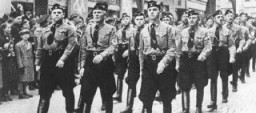You searched for: 奢侈品小紅書引粉【TG飞机:@bapingseo】google优化开户霸屏靠谱【TG电报:@bapingseo】谷歌留痕转码推广【Telegram:@bapingseo】哪里找lol全球总决赛竞猜官网伟德国际娱乐1946安装银河双子星手机版官网下载足球外围哪个平台最靠谱?Y7yA0Y/524509.html
<< Previous | Displaying results 271-280 of 339 for "奢侈品小紅書引粉【TG飞机:@bapingseo】google优化开户霸屏靠谱【TG电报:@bapingseo】谷歌留痕转码推广【Telegram:@bapingseo】哪里找lol全球总决赛竞猜官网伟德国际娱乐1946安装银河双子星手机版官网下载足球外围哪个平台最靠谱?Y7yA0Y/524509.html" | Next >>
-
Dora Unger
ID CardDora, her parents, brother, aunt, uncle, and two cousins lived together in her grandfather's home in Essen, Germany. The Ungers were an observant Jewish family, and when Dora was 8, she began to regularly attend meetings of Brit HaNoar, a religious youth organization. 1933-39: In October 1938 a teacher, with tears in her eyes, came to Dora at the municipal pool, saying "Jews cannot swim here anymore." Just weeks later, on November 9, Jews were arrested and their property destroyed. A neighbor tried to…
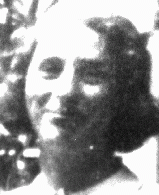
-
Frederick R. Wohl
ID CardFrederick was born to a Jewish family in the resort city of Baden-Baden, located in Germany's Black Forest region. His father owned a pharmacy there. His parents were proud German citizens and Frederick's upbringing was not religious. He was sent to Switzerland on a student exchange program just before the Nazis came to power in 1933. 1933-39: Back in Germany Frederick worked in a machine factory for two years but was fired for being Jewish. In Frankfurt to look for work, he went to a Mardi Gras festival.…
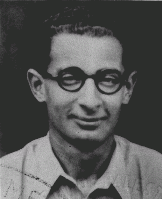
-
Mirjam Waterman Pinkhof
ID CardMirjam grew up on her family's farm in Loosdrecht. Her parents, secular Jews, had moved from Amsterdam in 1914, two years before she was born. The Watermans were pacifists. Mirjam attended a progressive school in Hilversum. Her brother and youngest sister attended the Kees Boeke School, a progressive school located in Bilthoven that taught pacifist and humanistic ideals. 1933-39: In 1938 Mirjam began teaching at the Kees Boeke school. A group of German-Jewish refugees came to the school in 1939. Mirjam…
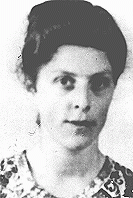
-
Helen Lebowitz
ID CardHelen was one of seven children born to a Jewish family in Volosyanka, a town in Trans-Carpathian Ruthenia. Nestled in the Carpathian mountains, Volosyanka was a small town with a sizable Jewish community. Jewish life revolved around the town's synagogue. Helen grew up in a close-knit family; many relatives lived nearby. Her father owned a shoe store in the town. 1933-39: When Helen was 11 years old, Hungary occupied the Transcarpathian region. At once, Jews were prohibited from holding government…
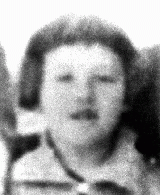
-
Frieda Greinegger
ID CardFrieda was the fourth of five children born to strict Catholic parents. She had one brother and three sisters. Frieda grew up on a large farm near the village of Michaelnbach in northern Austria. The farm had cattle, horses, pigs and poultry, and the children worked long hours helping their parents on the farm. At age 12, Frieda left school to work full time on the farm. 1933-39: Germany annexed Austria in March 1938. When war broke out in September 1939, Frieda's brother was drafted into the German army.…
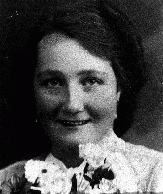
-
Edek Blonder
ID CardThe Blonder family lived in a two-room apartment in the back of a store. Edek was the third of eight children. His father eked out a meager living by tutoring students in Jewish subjects, and beginning in 1930 he worked distributing food vouchers to the poor. 1933-39: After graduating from secondary school, Edek was invited to play soccer professionally on the local Club Maccabi team, which was part of a Jewish soccer league. Club Maccabi arranged for him to attend trade school to learn cabinet making at…
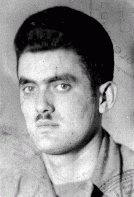
-
Charles (Karel) Bruml
ID CardCharles was born to a Jewish family in Prague, the capital of Czechoslovakia. His father owned several shoe factories there. Prague's Jewish minority enjoyed a great deal of cultural freedom because of the new democratic Republic. Though antisemitism still existed in Czechoslovakia, Prague was a relatively tolerant city. 1933-39: Charles' father's business thrived in Prague, and they lived well. Charles enjoyed painting as a child and decided to study at an art school in the city. On the morning of March…
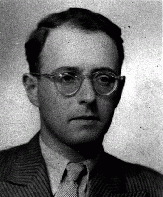
-
Genya Rotenberg
ID CardGenya and her brother, Nahum, were raised by Jewish parents in Lodz, Poland's second-largest city and an industrial center. Before the war, one-third of Lodz's inhabitants were Jewish. Genya's parents placed emphasis on their children's education. 1933-39: In 1939, when Genya was 9, the Germans occupied Lodz. After that, it was forbidden for "Jews, Gypsies and dogs" to be in public places. Since Jews weren't allowed to go to school, her parents arranged to tutor her secretly at home, but she couldn't keep…
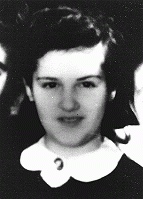
-
Martin Niemöller: "First they came for..."
ArticleLearn about the origins and legacy of Pastor Martin Niemöller's famous postwar words, “First they came for the socialists, and I did not speak out…”
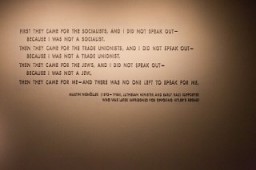
-
Jozef Tiso
ArticleJozef Tiso was a Slovak politician and a Roman Catholic priest. From 1939 to 1945, he was the president of the Slovak Republic, one of Nazi Germany’s allies.
